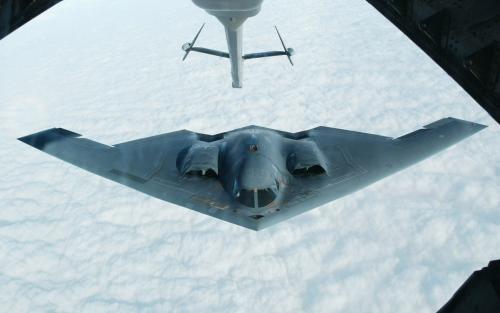I graduated from Marine Corps Officer Candidate School (OCS) in August of 1995. Proudly wearing a Marine Corps shirt and lunching with my mom, I was somewhat surprised when the waitress at the restaurant asked, gushing, if my boyfriend was a Marine. Before I could answer, my mother quickly jumped in: “No. She is a Marine. A lieutenant.” The poor woman was obviously embarrassed and leaned in: “Honey, my brother is a Marine and I didn’t know we had women in the Marine Corps.” I could tell she wasn’t kidding, so I tried to alleviate her discomfort. “Well,” I said, “I’m the only one.”
We had a good laugh and she departed to take care of other customers. In the meantime, she took a minute to call her brother, who verified there are females in the Marine Corps, but reported that he had never seen any. True, we were small in number, but I didn’t realize how small. It being 1995, I couldn’t simply pull out my phone and Google “number of women in the Marines?” (Brace yourselves: We didn’t have internet or smartphones. The horror.) The truth is, according to the Defense Manpower Data Center, in 1995 women made up less than 5 percent of the Corps. After 10 weeks of OCS, which combined male and female platoons in one company, I didn’t sense from the men or the other women that we were rare or special, but Marines. After paying the check, the waitress, turning her head said: “I don’t know why any woman would want to be a Marine.” This is the first time I remember being singled out as an anomaly.
In the years since, I’ve often been asked a version of that same question: Why would a woman want to be a Marine, and how does it strengthen our ranks? Since I now have less time in front of me than behind me in our Corps, I’ve had some time to think about it.
Why join?
Fundamentally, the reasons a woman would join are the same for a man: love of and service to our country, the ability to save for college (via the GI Bill), and a desire to “see the world.” Here are a few more reasons with upgrades for the current times:
Pride. We have an old slogan and various commercials that dub Marines as “The Few, The Proud” and asks, “Do you have what it takes?” Women in the Corps are the “fewer and proud” (we are still the smallest number of women in any service by percentage), though since I entered in 1995, the number of female Marines has doubled. As the smallest service, Marines have always felt special and different. Because of this, we have a sense of pride in ourselves and our organization like no others. Our ethos and history, full of examples of leadership and bravery, supports this. Couple that with being a woman amongst mostly men and the pride goes deeper. There is an intense feeling of accomplishment that comes with being able to keep up with and even lead others.
Pay. You wouldn’t think pay would be a bright spot, considering that many in the military are below the poverty line, but consider this: The military absolutely embodies the equal-pay-for-equal-work principle. Regardless of your gender, your pay will be equal to others with the same time in service and qualifications. In the U.S. economy more broadly, a woman earns only 79 percent of what a man earns.
Experience. Military service allows you to learn skills and to experience places and things you otherwise may have not. That experience, coupled with veterans’ preference for many follow-on occupations, is priceless. Despite some congressional restrictions on women serving that were present when I was coming up in the Corps, I was never restricted from anything I wanted and was capable of doing. With the disappearance of the “front line” on the battlefield in Operations Enduring Freedom and Operation Iraqi Freedom (and even earlier), women were filling roles in direct combat long before it was formally legal. Now, women found qualified can serve in the capacity they choose. In combat, my female Marines, alongside their brothers, manned machine guns and fought bravely. And no one by their side questioned their role.
The challenge. Initially, you will be put to the test mentally and physically, perhaps like never before. The challenge grows with each promotion and the weight of responsibility that accompanies it. As you learn, grow, and climb the ranks, the challenges change but they are ever-present.
And of course:
The Uniform. The Marine uniform is among the most distinct and recognizable in the world. I love my brothers and sisters in the other services but let’s face it, we’ve got this one. With the recent changes to the uniform instructions, the Marine Corps is the only service to allow men and women to wear nearly the same duds, the “leatherneck” collar; and dress blues that have been turning heads for years.
What women bring to the corps
Far from the days when posters called on the United States to “free a [female] Marine to fight,” women on the battlefield are generally recognized as a force multiplier in the modern Marine Corps. Indeed, in 2013 the Joint Chief of Staff unanimously supported dropping a ban on women in combat. There are a number of reasons for this.
For one, there are some roles on the battlefield where women are the best choice for the mission, such as the “Team Lioness” program, in which women soldiers interacted with local women in contexts where it would have been considered inappropriate for a man to do so. That program has been critical to combat operations in Iraq and Afghanistan. Another crucial reason to integrate women into teams within the Marines and other services is that research has shown that women help improve team dynamics.
My own observation is that women often have a level of patience and calculation that complements their brothers—not that they’re a distraction, as critics have contended. And crucially, welcoming women into our male-dominated Corps doesn’t require lowering standards: On the contrary, physical requirements for women in the Corps have steadily increased since my entry in 1995, when we were still running 1.5 miles (vice 3 for men) for the Physical Fitness Test. Both male and female Marines have distinguished themselves in combat since 2001.
Overall, therefore, the Marine Corps value on combat leadership places the emphasis where it should be, not on the gender of the Marine.
A More Modern Marine Corps
The Marine Corps is far from perfect, but we’ve come a long way. I have no regrets on the path I chose so long ago, and I have stayed because of the Marine to my left and right. A band of warriors, and we all bleed the same. As the nature of warfare changes and the front lines blur further, those who can maintain leadership traits in any environment will be increasingly valued, regardless of gender.
Women Marines are some of the toughest yet compassionate, feminine yet fierce warriors I’ve ever met. Lionesses. A Marine is a Marine—no quarter is given for being a woman and more importantly, none is expected. Equality at its best.
The Brookings Institution is committed to quality, independence, and impact.
We are supported by a diverse array of funders. In line with our values and policies, each Brookings publication represents the sole views of its author(s).





Commentary
Why would a woman want to be a U.S. Marine?
February 28, 2019